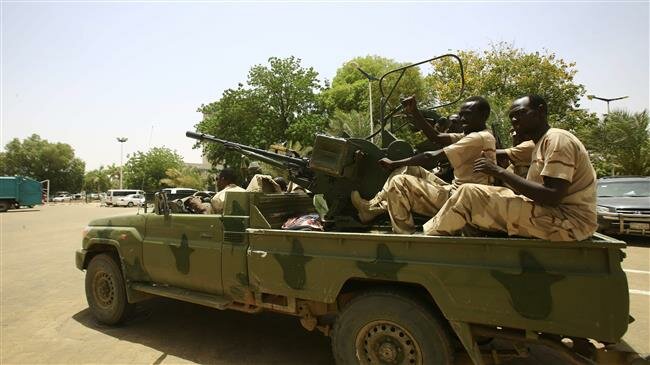A Sudanese military expert says a recent brutal crackdown on pro-democracy protesters in capital Khartoum that killed scores of people was part of a Saudi-Emirati plan and launched at Riyadh’s bidding.

The plan to storm a protest camp outside Sudan’s Defense Ministry in central Khartoum on June 3 had been discussed during recent visits to Saudi Arabia, the United Arab Emirates and Egypt by Sudanís military ruler General Abdel Fattah al-Burhan, who chairs the country’s Transitional Military Council (TMC), the expert told the Middle East Eye on condition of anonymity.
“The breaking up of the sit-in was one of the main points on the agenda that was discussed. Unless he got the green light from his regional allies he would not have been able to commit such a crime,” he said.
On Monday, the Rapid Support Forces (RSF) attacked the camp, prompting clashes with the protesters, who had been camping out there for months to demand that the TMC hand over power to a civilian government. The TMC assumed power in April after the military toppled President Omar al-Bashir in the wake of angry protests against his 30-year rule.
The Central Committee of Sudanese Doctors, which is associated with protest groups, said on Wednesday the death toll from the crackdown had risen to 108, including three children from one family.
Burhan was last week among Arab leaders attending two emergency summits in Saudi holy city of Mecca to address rising tensions in the Persian Gulf.
His visit to Saudi Arabia followed trips to Egypt to meet President Abdel Fattah el-Sisi on May 25, and to the UAE to meet Abu Dhabi Crown Prince Mohammed bin Zayed the following day.
Another senior member of the military council, General Mohamed Hamdan Dagolo, met Saudi Crown Prince Mohammed bin Salman in Jeddah on May 23.
Sudan’s RSF is led by Dagalo, who is the deputy leader of the TMC and the second most powerful man in Sudan right now. The general is close to Saudi Arabia and the UAE.
Reports say that nearly all of the Sudanese mercenaries fighting in the ranks of a Saudi- and Emirati-led military coalition in the war on Yemen are from the RSF.
The military expert further said the RSF’s clampdown raised serious concerns about human rights abuses against civilians as members of the paramilitary forces were not trained how to deal with civilians and lacked the “discipline of professional members of the security forces”.
The report added that RSF members had used live ammunition, attacked and beat women, and burnt down tents during the recent raid in Khartoum.
He said the current situation could also drive a wedge between the RSF and its allies and other elements of the armed forces, raising the prospect of more violence and street battles.
“If the army splits or intervenes, it will also be horrible because that could cause street fighting in Khartoum, and that would only increase the casualties among civilians,” he said.
Saudi Arabia and the UAE backed the military council in the aftermath of the coup against Omar al-Bashir by pledging $3 billion in cash and aid to the country.
Ahmed Abdelaziz, an Algerian-Sudanese analyst, believes that the donation “would have come with strings attached”.
“On April 21, Riyadh and Abu Dhabi pledged $3bn to Sudan. They did not do it without consideration. And this counterpart is not democracy. They want… their economic interests to be preserved.”
LINK: https://www.ansarpress.com/english/11477
TAGS:
































 online news tv
online news tv




